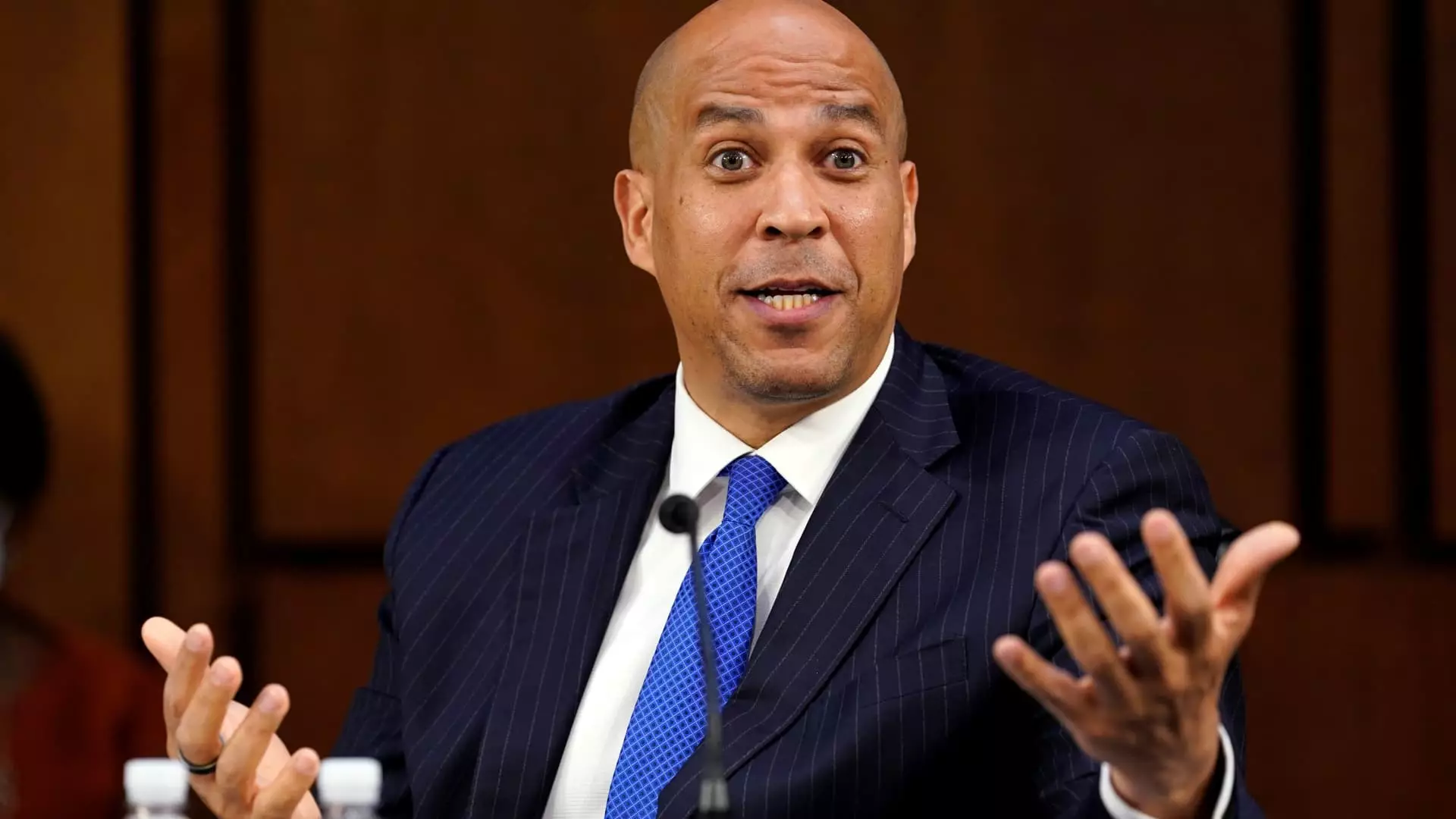In the ever-evolving landscape of American politics, the intersection of technology and political financing often paints a troubling picture. Recently, Sen. Cory Booker took a firm stance against accepting campaign contributions from tech billionaire Elon Musk. This decision not only underscores the complex relationship between wealth and political influence but also serves as a testament to the critical role that elected officials play in shaping public policy. Booker’s rejection of Musk’s potential donations comes amid a political firestorm surrounding the GOP-backed spending bill, which he deems a “disastrous” move for the economy.
Politicians like Booker must navigate a tricky balance: leveraging influential figures like Musk while maintaining their ideological integrity. The pushback against Musk’s involvement is rooted in a deeper concern for electoral integrity, a valued principle in liberal politics. In this context, Booker’s cautious approach is not just about rejecting funds; it’s about championing a larger movement that prioritizes the people’s welfare over the financial interests of billionaires.
The Fallout of Political Feuds
The rift between Trump and Musk has unveiled more than a mere feud between two influential figures; it has exposed the fragility of alliances in the political sphere. Their public clash, largely amplified through social media, has raised questions about loyalty, integrity, and the future of ideological affiliations within the Republican Party. The former president’s dismissal of Musk as “wearing thin” and “going crazy” serves to illustrate how quickly allegiances can sour, especially when financial interests are involved.
Booker emphasizes the need for Musk to step up and advocate against the spending bill rather than engaging in social media theatrics. His insistence on active involvement should resonate with anyone who believes that the political process requires more than passive observation. Musk’s decision to “fire off tweets” instead of actively advocating for change only exacerbates an already polarized situation. Ultimately, it’s a call for wealthy individuals to leverage their resources and influence responsibly and constructively.
The Implications of the GOP Spending Bill
The GOP-sponsored spending bill, aptly dubbed the “One Big Beautiful Bill Act,” has raised alarms among many Democrats and progressive thinkers. With proposed tax cuts from the Trump era and controversial measures that threaten Medicaid funding and federal assistance programs, the legislation appears to cater more to the wealthy than to the average American. Booker’s warning that “average Americans are going to see their costs skyrocket” with the passage of this bill resonates profoundly with those who fear the erosion of essential social safety nets that many Americans rely on.
More disturbingly, this proposed legislation is steeped in contentious policies such as increased funding for border security while slashing Medicare and food stamp benefits. These choices reflect a fundamental misunderstanding of the economic struggles faced by so many families. Not only does the bill neglect the plight of the most vulnerable citizens, but it also prioritizes the desires of a select few in Washington.
Democratic Unity in Crisis
As debates intensify over the spending bill, some Democrats, like Rep. Ro Khanna, advocate for including Musk in the party fold. This call for inclusion raises serious questions about the values and motives of the Democratic Party today. Should we be courting billionaires who have historically aligned with problematic political ideologies? Is it not time for a reassessment of who aligns with our values as a party? By attempting to persuade Musk that the Democratic Party espouses values reflective of a progressive agenda, the party may inadvertently dilute its mission.
Moreover, it is paramount for Democratic leaders to maintain a unified front against harmful policies—after all, the grassroots movements that champion social change are often at odds with the interests of billionaires who may only engage when convenient. With many Democrats remaining divided on how to approach figures like Musk, strategic clarity and ideological consistency become necessary, lest the party be subsumed by the very forces it seeks to oppose.
In a political environment where engagement appears sporadic and opportunistic, Booker’s confrontation with Musk is much more than a mere campaign tactic. It signifies a broader struggle for the soul of the Democratic Party in the face of looming challenges. If those in power fail to act decisively, the consequences may echo beyond the walls of Congress, impacting everyday Americans, their livelihoods, and the very fabric of democratic governance in the United States.


Leave a Reply